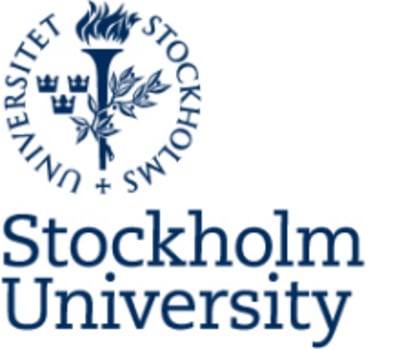
Master in Analytical Chemistry
Stockholm University

Key Information
Campus location
Stockholm, Sweden
Languages
English
Study format
On-Campus
Duration
2 years
Pace
Full time
Tuition fees
SEK 70,000 / per semester **
Application deadline
15 Jan 2025*
Earliest start date
26 Aug 2024
* Application deadline applies for EU students for fall 2024 intake
** EU/EEA/Swiss citizens are not required to pay fees
Introduction
Chemicals surround us. Pesticides in your coffee? Forbidden azo-dyes in the print on the coffee cup? Per- and poly-fluoroalkyl substances (PFAS), the “forever chemicals”, in your lipstick? Regulation of biochemicals in the body while drinking coffee?
To answer these questions, you need to be able to measure these chemicals, that is to detect and quantify them.
In the Analytical Chemistry MSc program, you will learn the nuts and bolts of analytical chemistry
- how to extract and detect different chemicals
- how do different instruments work
- how to make the best use of data collected in chemical analysis
The master’s program consists of mandatory courses covering state-of-the-art techniques in chemical analysis in the first year and free courses and thesis work in the second year. The courses are conducted through lectures, seminars, and lab work. You will get extensive hands-on experience through lab projects. In these projects you will work through the whole analysis process from evaluating the need, setting the goals, developing the analytical methods, and finally, analyzing samples and reporting the results. Such projects may incorporate the determination of PAHs in house dust, active ingredients in pharmaceuticals, and contaminants in water, to name a few.
Curriculum
Firstly, the program will cover the separation of chemicals by gas and liquid chromatography as well as capillary electrophoresis, in combination with suitable sample preparation for air, liquids, and solid samples. Alongside this, you will be introduced to good analysis practices for quantitative analysis, quality control, and method validation.
Secondly, you will dig into mass spectrometry and optical spectroscopy for detection methods. For mass spectrometry, the fundamentals of the instrumentation – mass analyzers, ionization techniques – together with an interpretation of the mass spectra will be reviewed. You will be able to gain advanced experiences in mass spectrometry through project work incorporating MALDI, high-resolution mass spectrometry (HRMS), or even nontarget analysis.
Thirdly, you will learn to implement data science tools to make best use of the data collected with advanced analytical techniques. In addition to basic statistics that can aid decision-making, we will also cover machine learning models for optimizing methods with the design of experiments, predict health conditions from the data on metabolite concentrations, and implement predicting analytical properties of the chemicals to match the peak detected in LC/HRMS with its structure.
Last but not least, you will get the opportunity to get your feet wet in the analysis of biological and environmental samples. For this, you will examine the peculiarities of different sample types and analytes, legal limitations (if applicable), and explore some of the cutting-edge research questions in the field.
Year 1
A full year of courses covering a range of topics such, read more about each course on the course pages.
- Advanced separation methods, 10ECTS
- Quality control of the analytical process, 5 ECTS
- Mass spectrometry, 10 ECTS
- Optical spectroscopy in analytical chemistry, 5 ECTS
- Advanced data analysis in analytical chemistry, 10 ETCS
- Advanced mass spectrometry, 10 ECTS
- Bioanalytical chemistry, 10 ECTS
- Chemical methods for environmental analysis, 5 ECTS
Year 2
Elective courses and a degree project (mandatory).
Perhaps study a different branch of chemistry to become interdisciplinary. Some of the most important discoveries are happening where multiple disciplines meet, like where analytical chemistry meets biochemistry or materials chemistry.
Independent project
The master's program in analytical chemistry contains an independent project.
In order to start working on your independent project you will have to have passed three of the mandatory courses.
Admissions
Career Opportunities
The career prospects for someone with a master’s in analytical chemistry are extremely good. The degree is very flexible and can be used in many fields including healthcare, environmental monitoring, manufacturing, pharmaceuticals, and more.
For the last ten years, graduates of this program have found full employment upon graduation.